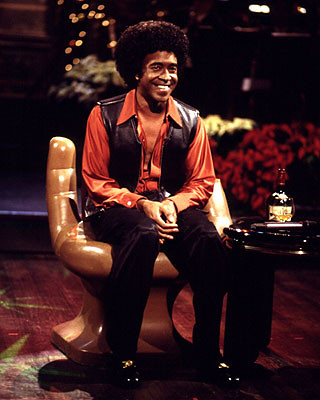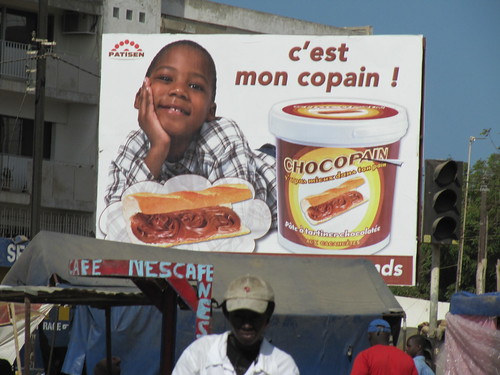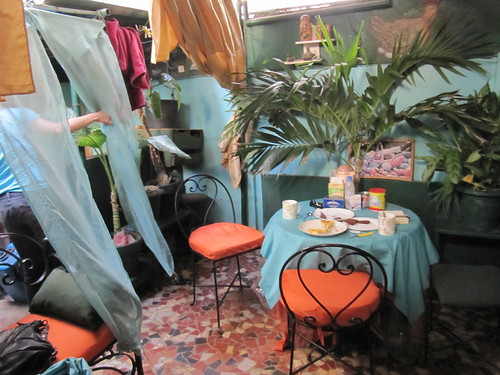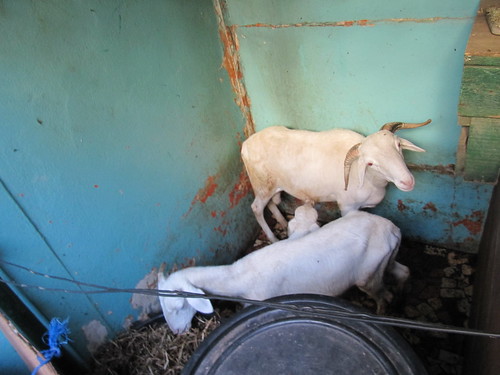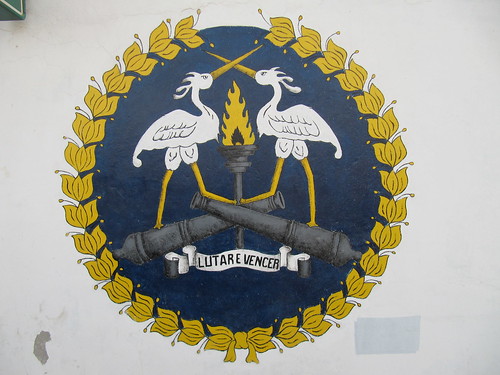I flew back to Dakar yesterday morning. It’s good to be in my own bed again after three weeks of travel, but I must say that I was grateful to have visited a neighboring country that is so starkly different than Senegal.
Guess who’s back?
How do I know I’m back in Dakar? Easy. I was mildly yet unmistakably hit on and manhandled before the immigration agent could even stamp my passport. Naïve Megan of April 2010 would have chalked this incident up to innocent over-friendliness by a Senegalese airport official- but older and wiser Megan of 2011 now knows better.
I don’t mean to start this posting off on a negative note, but it just so happens that this touch of
teranga was the first thing that I experienced upon my return. It would appear that Dakar has not yet sunken under the weight of a million self-appointed (and profoundly misguided) ladies’ men.
This Welcome Back notwithstanding, I am largely happy that things are largely the same in Senegal. I mean, it could be worse- I’m not in Côte d’Ivoire– and instead I can sit back and smile at mundane weirdness like this:
Faux chocolate spread standing in as a child’s faithful friend (this kind of advertising disturbs me to no end).
I can still stop by someone’s house for a cozy chat, only to be interrupted by a loud and unmistakable bleat coming from beyond the gauzy curtain.
Yes, I said bleating- and yes, it’s commonplace for pet sheep to live indoors. That’s Senegal for you.
But back in Cape Verde, the change in environment was definitely a welcome respite. I swear that I am not getting kickbacks from their tourist board, but I was surrounded by Cape Verdean hospitality right up until the point that I reached the distasteful Senegalese dude at the airport. Here’s a little recap of my last hours in Praia:
The day before I was to leave, my blog-famous Cape Verdean lieutenant discovered that we would be traveling on the same flight out of Praia.
“I can pick you up in the morning, no problem.” he offered without any thought of me even asking.
This guy managed to not
kill me as we navigated the perilous mountain roads of Santiago, so I was more than happy to accept another ride in his death machine of a tiny car. Our flight was at seven the next morning, and he said he’d be at my hotel at 5:50 to get me. I think that 5:50 is cutting it a bit close for an international flight, but I accept his generosity and hope his car doesn’t break down in the morning.
Saturday morning comes and in good military fashion I am outside at 5:40 with my overweight suitcase. The hotel concierge is a bit concerned that I haven’t left for the airport yet, as is the taxi driver who stands next to him and hopes I will panic and ask for a high-speed transfer to the airport.
My phone rings at 5:50 and it’s my pal telling me that he’s gonna be there at six.
“He’s coming at six?” the concierge asks when I hang up the phone. The taxi driver helpfully points out that boarding for Dakar also begins at six; I have no reason to doubt him since every Cape Verdean knows the timetables of all flights coming in and out of Praia. I’m only minorly concerned, and choose to hold tight. After all, staying an extra day in Cape Verde would not be the worst thing in the world, and my new friend has never led me astray. Yet.
The clock strikes 6:05 and I see only a truck coming down the road. It’s not the death machine that I occupied the weekend prior- but instead it’s a military Hilux with a bunch of uniformed guys crowded into the bed. The truck peels into the hotel and the guys hop out to grab my stuff. The taxi driver is looking at me as if to say, “This is your ride?” Yep, I think to myself, my ride is going to be cooler than your ride.
The lieuentant gets out of the passenger’s side door and shakes my hand. He’s got that perpetually optimistic smile on his face and he seems to read my mind: “Don’t worry, we’ll make it.” he says “You’re in good hands.” I’m not worried. This whole early morning transfer is kinda amusing, and the thought is not lost on me that what has now become commonplace after 11 years in the military is a sharp contrast to how I once lived as a traveling backpacker.
Before I know it we are packed up and on our way: three Cape Verdean officers squished in the back row (they insisted that I take the front), a duty driver, and a cluster of junior enlisted riding in the back with a ton of luggage. Even if
TACV did close the door for our flight, I am certain that these guys would negotiate it back open.
We roll up to the airport, and the enlisted offload my bags. I thank them and grab my passport to stand in line with my adopted traveling companions. When it’s their turn at the counter, the lieutenant motions for me to come over too. It would appear that I am checking in with them as well, and as such won’t have to pay any overweight luggage fees. All I do is stand at the back of the group and soon my luggage is checked and a boarding pass is handed to me by one of the officers. From start to finish, I really have been in good hands.
I love working with this military, and it’s not just because they carry my heavy luggage.
You might wonder why I am telling you this inconsequential anecdote that chronicles another ordinary travel day. I do so because it’s emblematic of
all the Cape Verdean interactions that I have encountered over the past three weeks. I know it’s not appropriate to compare the two, but life in Senegal and life in Cape Verde carries two completely different vibes.
After spending fourteen months in Senegal, I think you probably know that the men here in general drive me just about bonkers. Other Africans will tell you that the Wolof are a cocky people, and I have to say that I agree. Don’t get me wrong- every culture and every country has their fare share of ingratiating men (and women)- but I just happen to think that in Senegal’s case, the deck is pretty stacked.
The past three weeks was only a snapshot of life in Cape Verde, but I never once had to deal with the kind of in-your-face, “Check me out!” experiences that people associate with Dakar. Tourism is suffering in Senegal, and one theory is that visitors don’t want to visit a place that promises world-renowned hospitality but then rewards your midnight arrival with chaos in the form of six hundred phone card vendors and airport officials trying to rub your shoulders.
Sorry, I really think that I’d rather go back to Cape Verde. At least over there I get a cool military transport and a genuine sense of peace and morabeza.
